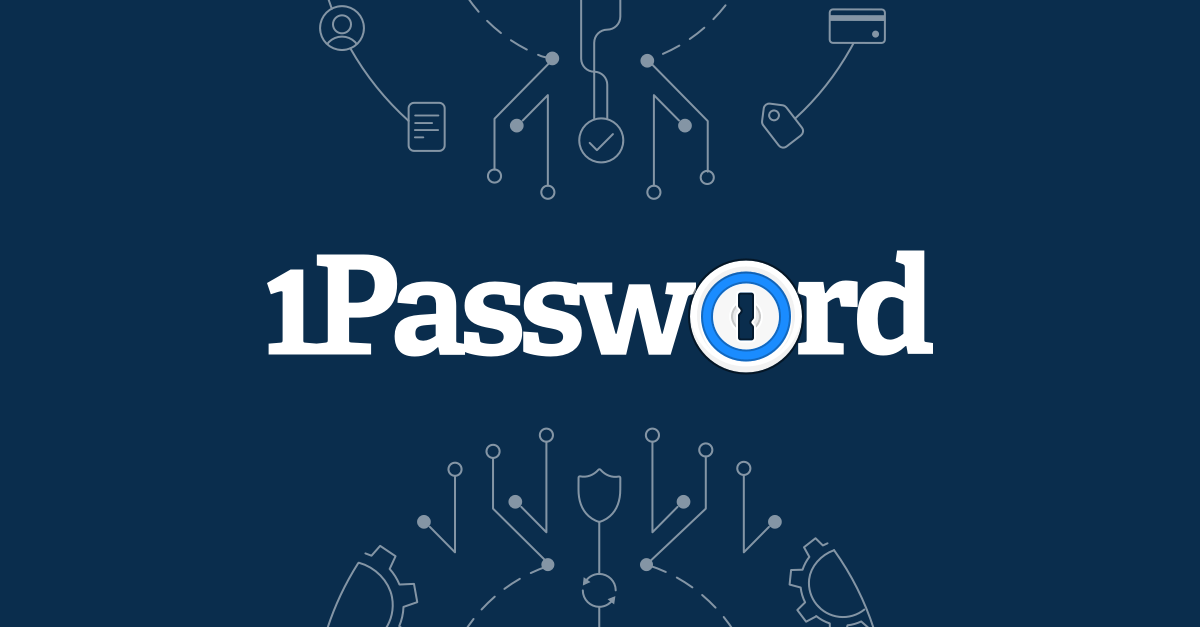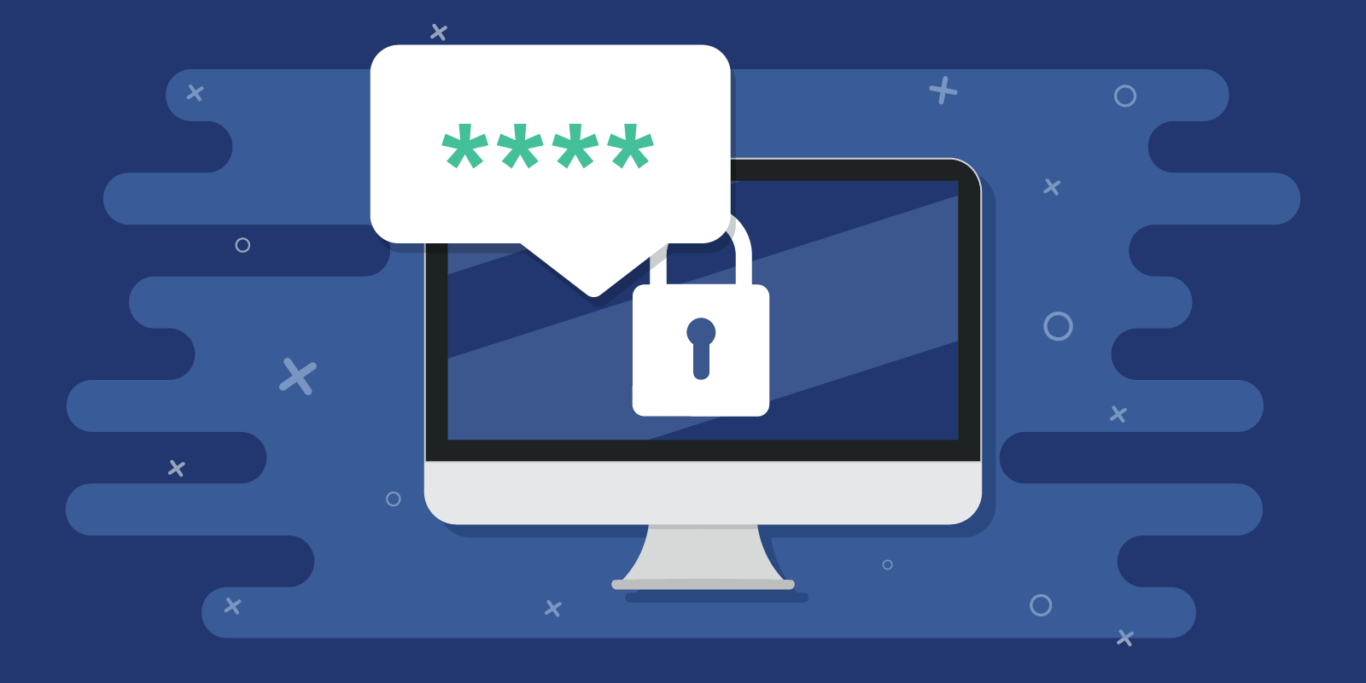The Internet’s vegetables are password managers.
We know they’re good for us, but the majority of us prefer to eat the password equivalent of junk food. For the past seven years, the most widely used passwords on the internet have been “123456” and “password.” The trouble is that most of us have no idea what makes a decent password and, even if we did, we wouldn’t be able to remember hundreds of them.
Because so many employees now work from home, outside of the business network, the number of passwords you’ll require has likely climbed dramatically. Memorize them all. It’s the safest (if strangest) way to store them.
(Be sure they’re long, sturdy, and safe!)
Just joking. For Memory Grand Master Ed Cooke, that might work, but most of us aren’t capable of such incredible accomplishments. We need to delegate that responsibility to password managers, which provide secure vaults to replace our poor, overworked memories.
A password manager provides convenience while also assisting you in creating stronger passwords, making your online presence less vulnerable to password-based attacks. Check out our guide to VPN providers for more information on how to improve your security, as well as our advice to data backup to ensure you don’t lose anything if the worst happens.
Why Not Use Your Browser?
On the one hand, this is fantastic because any app may use these ciphers to protect your data.
Unfortunately, any encryption is only as powerful as its weakest connection, therefore cryptography alone will not protect your passwords.
Best Overall
1Password

The number of extras that 1Password provides sets it apart from the other options on this list.
It isn’t the cheapest (for that, see our next recommendation), but it will notify you when a password is weak or has been compromised (by verifying against Troy Hunt’s outstanding Have I Been Pwned database).
1Password, like other password managers, includes apps for almost every operating system, including MacOS, iOS, Android, Windows, and Chrome OS.
There’s even a command-line utility that works on any platform, and the business has released a Linux client in beta.
There are also plugins for your chosen online browser that allow you to quickly generate and edit new passwords.
1Password recently released 1Password 8, a new version of its apps, and I’ve had mixed results with it.
On the one hand, it now supports Windows laptops with ARM architecture.
However, I’ve had issues with autofill not functioning, keyboard shortcuts not working until I reopen the browser, and other bugs on MacOS Monterey. The issues so far aren’t enough to cause me to reconsider our top option, but it’s something I’ll keep an eye on. In addition, the corporation recently cut the length of its free trial period from 30 to 14 days.
In addition to being a password manager, 1Password can also be as an authentication tool, similar to Google Authenticator, and it creates a secret key to the encryption key it uses for further protection, ensuring that no one can decrypt your passwords without that key. (On the flipside, if you lose this key, no one, including 1Password, will be able to decrypt your passwords.)
1Password also integrates well with other mobile apps. 1Password is integrated with many apps and can autofill passwords, eliminating the need to copy and paste passwords from your password manager to other apps (which puts your password on the clipboard for at least a time). On iOS, where inter-app communication is more limited, this is more obvious.
Best Free Option
Bitwarden

Bitwarden is safe, open source, and completely free.
It’s the greatest solution for anyone who doesn’t need 1Password’s extra capabilities because the programs are polished and user-friendly.
Anyone can inspect Bitwarden for free, look for weaknesses, and correct them. The more eyes on the code, the more secure it gets in theory. Bitwarden has also been audited by a third party until the year 2020 to assure its security.
If you choose to run your own cloud, it can be installed on your own server for easy self-hosting.
Apps and extensions are available for Android, iOS, Windows, MacOS, and Linux, as well as all major online browsers.
Bitwarden’s desktop apps for Windows and MacOS also support Windows Hello and Touch ID, offering you the added protection of biometric authentication methods.
Semiautomated password filling tool from Bitwarden. When you visit a site for which you’ve saved credentials, Bitwarden’s browser icon displays the amount of credentials you’ve saved for that site. When you click the icon, it will ask which account you wish to use and then fill up the login form for you.
This makes switching between usernames simple and avoids the autofill pitfalls we discuss at the end of this tutorial.
Bitwarden also allows fully automatic form-filling if that is what you require.
A premium upgrade account is available from Bitwarden. Bitwarden Premium, the cheapest of the lot, costs $10 per year. You’ll get 1 GB of encrypted file storage, two-factor authentication with YubiKey, FIDO U2F, and Duo devices, as well as a password hygiene and vault health report. You will also receive priority customer service if you pay.
Best Full-Featured Manager
Dashlane

Dashlane actively monitors the dark corners of the internet, looking for leaked or stolen personal information, and notifies you if your data has been compromised.
Setup and migration from another password manager is simple, and you’ll encrypt your passwords with a secret key, similar to 1Password’s setup process. Dashlane is pretty similar to the other apps on this list in terms of functionality.
The startup did drop its desktop client earlier this year in favor of a web-based user interface, which differs from 1Password and Bitwarden.
Dashlane includes add-ons for all major browserss . As well as iOS and Android apps, and I primarily use passwords in the web browser anyway. It’s something to keep in mind if you rely on a desktop program.
Dashlane provides a 30-day free trial so you may try it out before making a purchase.
Best DIY Option (Self-Hosted)
KeePassXC

Do you want to have more control over your cloud data? Use a desktop application like KeePassXC to save your passwords.
It secures you with a master password, a key file, or both by storing encrypted versions of all your passwords in an encrypted digital vault. Instead of having a hosted service like 1Password sync your database file for you, you sync it yourself using a file-syncing service like Dropbox or Edward Snowden’s preferred solution, SpiderOak.
You can access your file from any device that has a KeePassXC client once it’s in the cloud.
Another Option
NordPass

NordPass is a newcomer to the password manager scene, but it comes from a corporation with a long history. NordVPN is a well-known VPN provider, and the company’s password manager has a lot of the same ease of use and simplicity as its VPN service. The setup and installation process is simple. Every major platform (including Linux), browser, and gadget has an app.
NordPass’s free version is limited to one device and does not support syncing. The premium version comes with a seven-day free trial that allows you to test device synchronisation. But you’ll have to upgrade to the $36-a-year plan to obtain it for good. (NordPass, like its VPN service, accepts cryptocurrency payments.)
NordPass has also just introduced an emergency access feature, which allows you to grant another NordPass user emergency access to your vault.
It works similarly to the 1Password feature in that it allows trusted friends or family members to access your account if you are unable to do so yourself.
Click here to read more interesting and useful articles.

